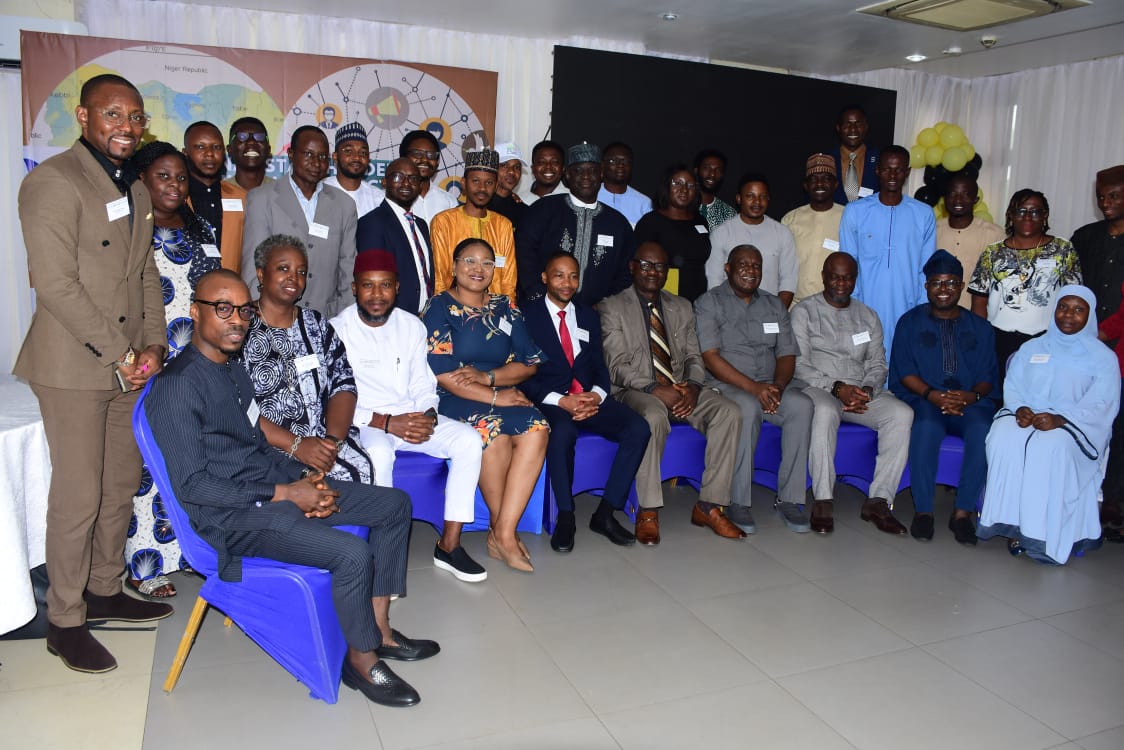Maureen Okpe
Stakeholders in the security sector have called for a harmonization of the conflict data ecosystem to minimize and avoid duplicity of data collated during crisis in Nigeria.
The stakeholders made the call, in Abuja during an international stakeholder forum on Nigeria conflict data ecosystem, with theme; Building experience and learning about conflict ecosystem in times of growing conflict tipping risk and the open data movement.
Convener of the forum and Senior Lecturer in Climate Change at the Natural Resources Institute, University of Greenwich, England, Uche Okpara, noted that conflict data in Nigeria are not unified and this sometimes raises the question on authenticity and accuracy of the data.
Okpara said, “data on conflict in Nigeria are scattered across different databases. And most of this data bases have been questioned over time in terms of the quality of the data. And when conflict data is faulty, it could affect the way in which we resolve conflicts so the idea of a conflict data ecosystem is to question issues around conflict data ethics, data quality, conflict, data protection, and even the way in which we collect different kinds of conflicts conflict data.
“In Nigeria for example, we know we have revenue conflicts, we have political conflict, we have religious conflict, we have gender based conflicts, which is violence. So we have a whole lot of conflict types. But sometimes most databases tend not to disaggregate the different conflicts we have. And also there seems to be no regulatory framework, no policy guidelines, that helps to regulate the way in which data is collected, processed, transformed, and even reused.
“Most conflict data actors operate in silos. So there is no synergy how the actors interact within the corporate data landscape. So what we are doing is to try to find a way to build a model for Nigeria, a conflict data ecosystem that will help unify the various actors and cause conflict transformation and peacebuilding.
“The framework we are developing, has a component called the conflict data resource system. This resource system have different types of conflicts. So we envisage that there will be specific data set that will capture specific types of conflict and we need this.
In the same vein, Director General, Institute for Peace and Conflict Resolution, Prof. Joseph Ochogwu reiterated the need for conflict data ecosystem, noting this will aid development as well as collaboration between stakeholders.
Prof. Ochogwu said “by addressing the conflict environment through a robust Conflict Data Ecosystem, Nigeria can pave the way for sustainable peace, effective conflict resolution, and inclusive development. Collaboration and commitment from all stakeholders are essential to foster an environment that supports data-driven approaches, upholds ethical standards, and ensures the responsible use of conflict data.
“To co-create a practical Conflict Data Ecosystem in Nigeria, it is imperative to prioritise data quality, address ethical issues, ensure data reliability, promote responsible use of conflict data, privacy, reliability and validity, and generate a harmonised ecosystem.
“Co-creating an ecosystem involves identifying the actors, collaborating with all peacebuilding stakeholders responsible for data management and governance, establishing privacy and security measures, adhering to ethical guidelines, ensuring compliance, and fostering agreements for data sharing and collaboration.
Nigeria can enhance conflict analysis, inform evidence-based decision-making, and facilitate targeted interventions to address conflict tipping by developing an ecosystem that integrates diverse data sources and facilitates stakeholder collaboration.
“The outcomes and benefits of such an ecosystem include improved conflict understanding, more effective peacebuilding strategies, and sustainable peace.Recognising the interconnectedness of data quality, ethical considerations, reliability, responsible data use, and data integration in the conflict data environment is crucial.
“By embracing the principles of the Conflict Data Ecosystem and co-creating a tailored ecosystem for Nigeria, the nation can harness the potential of data to build a more peaceful, resilient and sustainable society, ” he said.
Also, Partner/Chief Executive Nextier Security, Peace and Development,Dr. Ndubuisi Nwokolo noted the various conflict types in Nigeria, emphasizing that, the various geo-political zones are faced with different type of conflict which have been increased by various factors, ranging from government intervention, handling to perceived negligence in some quotas.

